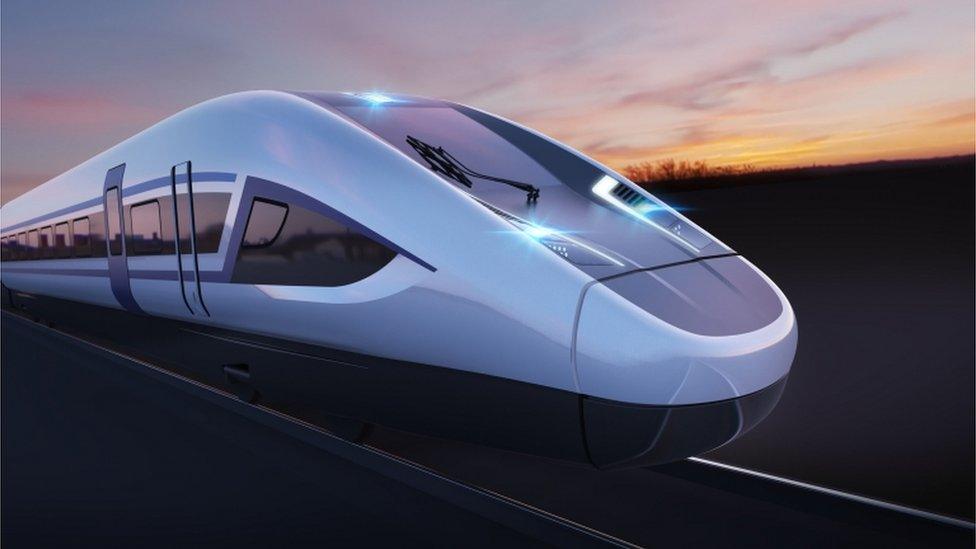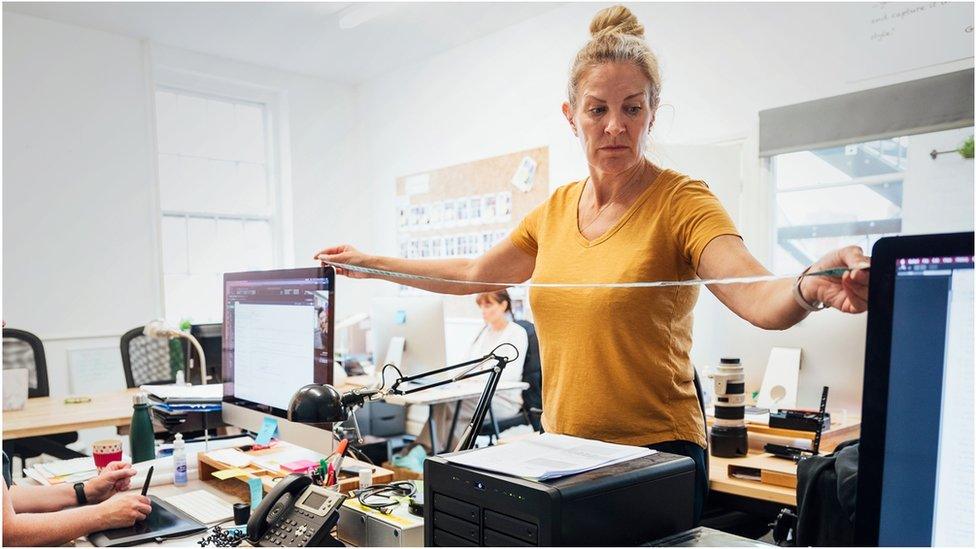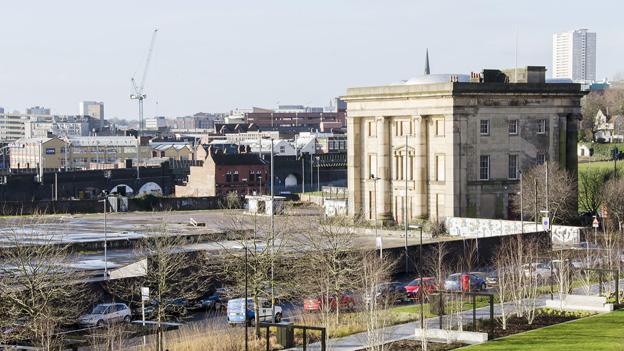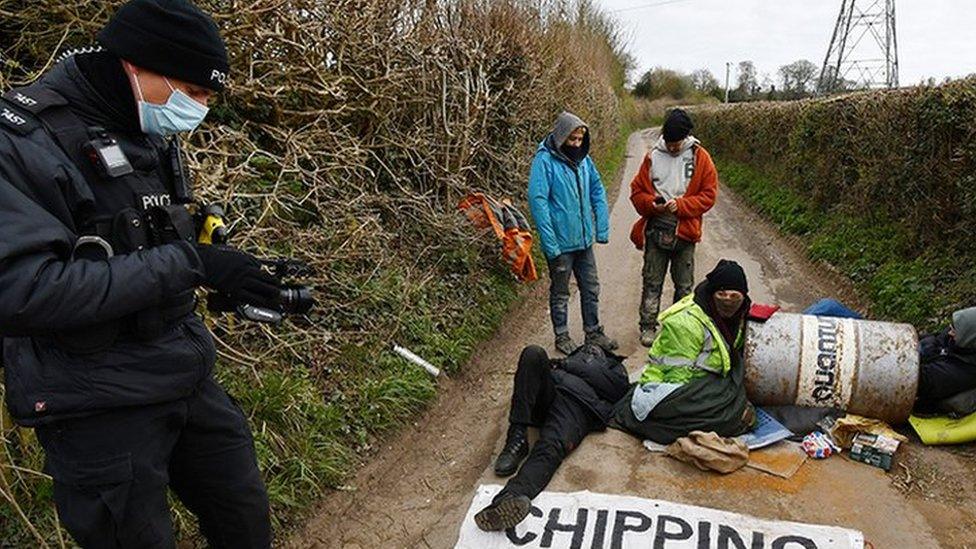'Keep spending on transport ready for return to work', says adviser
- Published
- comments

The government should still invest in projects such as HS2, despite the rise in home working, Sir John said.
The government needs to keep up spending on public transport, even though its usage has plummeted during the Covid pandemic, a government adviser has told the BBC.
Commuter numbers could drop by a quarter because of home working, said Sir John Armitt, head of the National Infrastructure Commission (NIC).
But the government should "hold their nerve" in case of a bounce back.
This was important for sustainability reasons, he said.
Sir John told the BBC that the NIC's modelling indicated there could be a continuing hit to passenger numbers of 25% from fewer commuters returning to offices after the pandemic.
"If you want to avoid congestion in the future, if you want to stick to your zero carbon, then you need to get people back on public transport.
"Therefore for the government, it's going to be a case of continuing to ensure that public transport is available, whether it's the trains or whether it's the buses, so that people can make use of it as and when they feel relaxed to do so," Sir John told the BBC.
He said despite their modelling, the government should "hold their nerve" and wait to see actual data on the return to work, and give people the opportunity to make choices over the next two or three years.
Assuming changes that could materialise in the coming months were permanent, they could damage city centres, which have driven economic activity.
He said that the rise of home working and Zoom meetings did not alter the benefits of investing in high-speed rail lines.
At 170m long, "Florence" is the largest ever tunnelling machine to be used on a UK rail project
Historic underinvestment in rail capacity remained the fundamental reason for HS2, Sir John said.
During the pandemic, the government has underpinned practically the entire rail system.
The latest figures showed there were fewer than a third of the normal level of rail journeys in the last quarter of last year.
Sir John also said that city centres would change as a result of new ways of working, and that "shops and offices could be replaced to a degree by housing" and that "could be really beneficial".
Suburban relocation
Last week, 43 out of 50 big UK employers questioned by the BBC said they did not plan to bring staff back to the office full-time.
They said they would embrace a mix of home and office working, with staff encouraged to work from home two to three days a week.
In a report, the NIC acknowledged that the "radical and rapid" rise in working from home during the Covid pandemic could lead to a permanent shift to less commuting.
The NIC found that almost a third of UK workers intended to work from home more often after the pandemic than they had before.
Almost half of UK employees were doing some work from home in April 2020, while in March 2021, almost a third of employees were working from home exclusively and 12% occasionally, it said.
Workers might also seek to relocate to more suburban and rural areas, but cities remained attractive and there might not be enough suburban and rural houses to cope with demand if people wished to relocate, it added.
Home-working opportunities tended to be limited to certain types of occupations, such as those that needed higher levels of qualifications, the NIC said.
This change in working patterns "greatly reduced workers' footfall in business and commercial districts in city centres".
In the first lockdown in March 2020, public transport use dropped by between 80% and 95%, depending on the type of transport.
Cycling boomed in the first lockdown, but then its uptake levelled off, while car use "recovered almost fully" during periods with reduced restrictions.
However, there is no evidence of increased car ownership, "which could indicate that people are not yet making decisions about long-term preferences", the NIC added.
- Published6 May 2021

- Published10 May 2021

- Published8 April 2021

